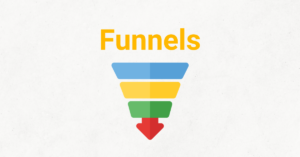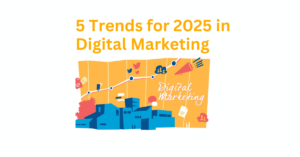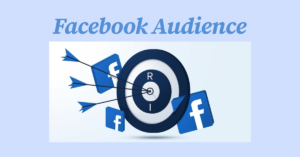Digital marketing revolutionizes the way businesses connect with the market. In such a world, forms of traditional advertising are no longer at the forefront of the marketing world. Instead, digital marketing really cuts across the fast-moving, tech-savvy landscape to shape business strategies, customer engagement, and brand growth.
What is Digital Marketing?
Digital marketing refers to the use of digital channels for promotion or marketing of products and services to consumers. In contrast, traditional marketing relied on mediums such as print, TV, and radio; with digital marketing, online platforms like websites, social media, email, and search engines are used. Its foremost advantage is its ability to target an audience globally, monitor real-time data, and adjust the campaign for optimal performance.
The Core Channels of Digital Marketing-
There are many core channels that fall under the great banner of digital marketing. Each one does different things and will help businesses achieve slightly different objectives-from simply building brand awareness and lead generation to sales and everything in between.
1. Search Engine Optimization (SEO):
SEO means the process through which a website is optimized to rank higher on the pages of search engine results. Users who often seek a specific keyword or phrase will be checking business websites that have been optimized since they drive more organic traffic. The making of a perfect blend involving keyword research, on-page optimization, and creating high-quality content will make one better placed on Google or Bing. Organic rankings are very important since they directly connect with building credibility amongst the users.
2. PPC Advertising:
PPC advertising is a form of advertising wherein businesses can advertise on search engines, social media sites, or other web pages and pay only for the times when their advertising copy is clicked. PPC encompasses Google Ads, Facebook Ads, and Instagram Ads. A PPC campaign works well in generating traffic quickly as well as targeting demographics, geographical regions, or specific behaviors. It is even possible to set very detailed budgets for these ads and to keep very close tabs over the performance of such ads.
3. Social Media Marketing:
Social media platforms include but are not limited to Facebook, Instagram, Twitter, LinkedIn, and TikTok; these all provide for broad business reach across potential customers. Through social media marketing, businesses increase brand awareness by creating and sharing content, such as posts, videos, or ads, with such media. It is indeed because these social media support user bases of such enormous magnitude that social media has become a necessary tool for B2B and B2C marketers.
4. Content Marketing:
Content marketing is always about creating helpful, relevant, and valuable content to attract and retain a clearly defined audience. Blogs articles, videos, infographics, podcasts, and much more fall into this category. Rather than pushing a product or service, content marketing tries to deliver useful information to customers to help them solve their problems or make informed decisions. Quality content contributes to superior SEO, creates lead generation, and establishes a brand as a market leader.
5. E-mail Marketing
The sending of targeted campaigns to leads through nurturing, product promotion, or the building of relationships with customers is referred to as email marketing. Personalization forms an integral part since companies segment their email list based on user behavior, demographics, or purchase history. Some of the most effective digital channels through which companies can retain their customer and build long-term relationships are email marketing.
6. Affiliate Marketing
Affiliate marketing: Affiliate marketing is a pay-for-performance marketing model in which organizations enter into partnerships with independent third-party websites, known as affiliates or publishers, or even with influential individuals known as influencers, to market their products. When an affiliate sends leads, clicks, or sales to a business, the affiliate earns a commission on this referred source. Therefore, companies can reach more audiences and extend their sales network by advertising with no upfront costs.
7. Influencer Marketing
Influencer marketing is a social media campaign where the brand ties up with an influencer or a thought leader to promote its products or services. Influencers are online personalities that have followers in their millions on Instagram, YouTube, and other social platforms, creating original content that speaks well to their audience. Herein lies the reason why the brand uses this trust factor between the influencer and potential clients and allows the brand to gain credibility.
Benefits of Digital Marketing-
Digital marketing has numerous benefits over traditional means of marketing, making it an integral part of any business strategy in this day and age.
1. Reach:
The digital marketing platform allows companies to reach their audiences on a global level with little effort. Be it regional customers or global markets, platforms like digital provide the scale for companies to be able to connect with diverse audiences easily, making scaling simple.
2. Targeted Audience Engagement:
Probably, the greatest benefit that digital marketing brings is to be able to focus precisely on who their target audience is; this could be based on information such as age, location, and interests amongst users as well as online behavior. For instance, through Facebook and Instagram, a business can choose to create very customized advertisements with user information, thereby increasing the chances of their engagement and conversion.
3. Cost-Effectiveness:
Overall, digital marketing is less costly than the traditional forms of advertising. For instance, PPC allows for budget setting according to what a business needs and only pays for the outcome, while social media marketing, email campaigns, as well as content marketing, are some of the cheaper methods, especially for small businesses with low marketing budgets.
4. Measurable Results:
Unlike traditional marketing, where it’s not so easy to know if the campaign has borne fruit, digital marketing provides real-time tracking and analytics. A business can measure website traffic, click-through rates (CTR), conversion rates, and return on investment (ROI) in order to evaluate campaign efficiency and strategy requirements.
5. Better Customer Experience:
Digital marketing not only brings in new customers to the firms but also enhances the experience of their already existing customer base. Personalized e-mails, engaging content, and prompt social media responses all can contribute toward building brand relationships with the customer and responding to customer needs in a quicker and better way. This, in turn, improves overall satisfaction and loyalty.




